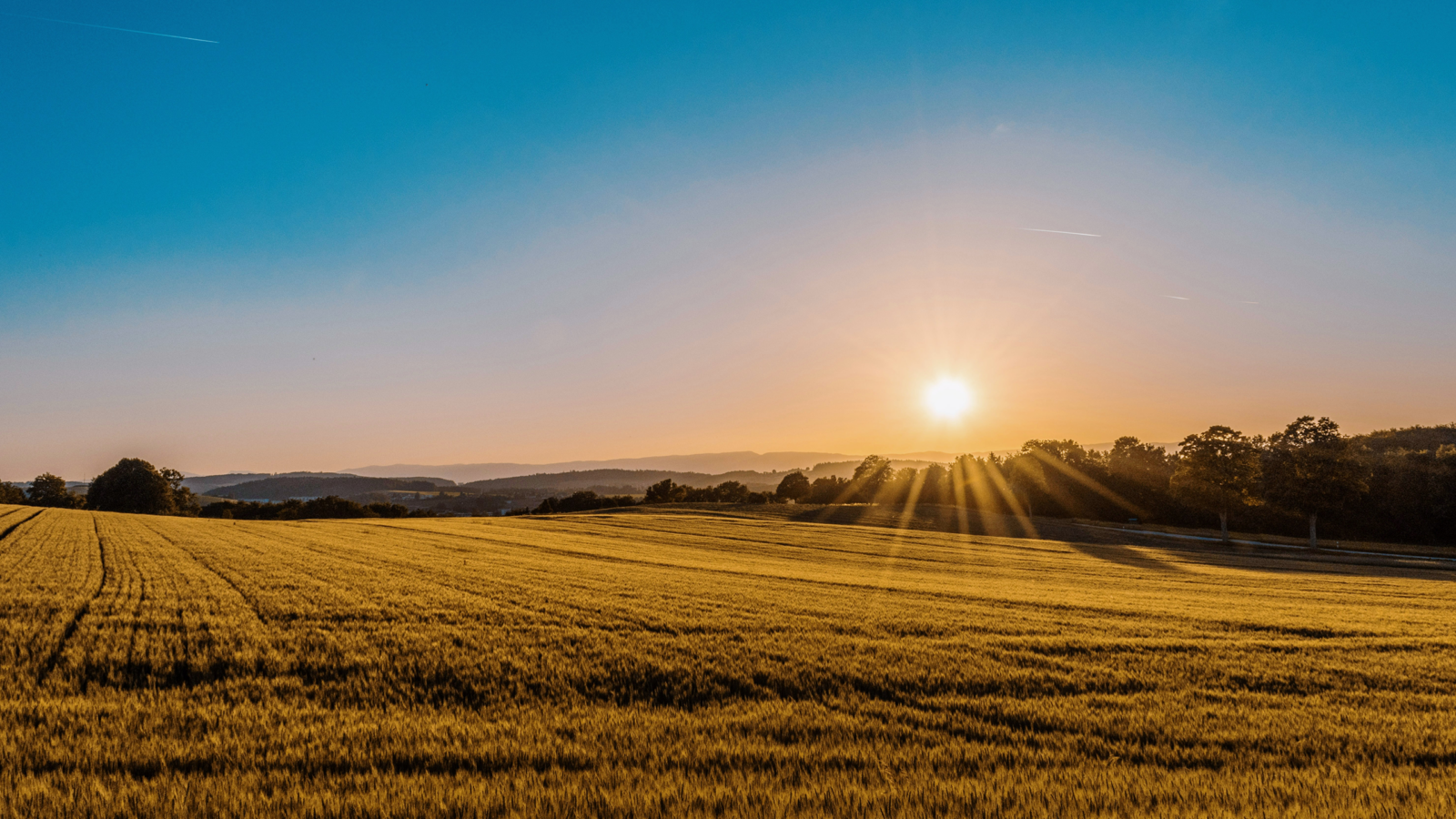Good morning.
Pack lighter or your wallet will be lighter.
For the first time in five years, American Airlines is increasing its prices on checked baggage, to $40 from $30 for bags checked at the airport. Baggage fees have been a boon for the domestic airline industry, generating $6.8 billion in revenue in 2022, according to the Bureau of Transportation Statistics. On the other hand, the airline actually reduced the fees on oversized and heavy luggage to what it claims amounts to its “lowest fee ever.” So come to think of it, bring out the steamer trunk.
Investment Groups Are Scoring Big on US Farmland

Wall Street types are discovering what American television viewers in the late ‘60s already knew: Green acres are the place to be.
Investors are pouring record amounts of capital into US farmland — and the bet is paying off, according to a Financial Times analysis of National Council of Real Estate Investment Fiduciaries (NCREIF) data.
Bet the Farm
The logic behind the sudden bucolic boom is pretty simple: the world’s population is rising, resources are becoming scarcer, climate change is eating away at arable lands, but people still need to eat. Ergo: farmland will only become more valuable. The rationale becomes even more clear when considering the (rather stark) numbers: According to UN estimates, the global population is set to increase about 20% by 2050, meaning 10 billion humans will need to be fed, requiring a 60% increase in food production.
Recent global crises have only fueled the rising value of farmland, with both the pandemic and Russia’s invasion of Ukraine shining a spotlight on the precarity of global food supply chains. Meanwhile, 2022’s rapid inflation and equities rout had many institutional investors looking to diversify their portfolios — with farmland proving a quick and reliable winner:
- Over the past three years, farmland owned by investment groups has seen its value double, per NCREIF data seen by the FT. In 2008, investment groups held about $1.8 billion in farmland, which increased to $7.8 billion by the end of 2020, and $16.6 billion by the end of 2023.
- Overall, the average value of US farmland has leaped from $1,270 per acre in 1997 to $5,460 per acre last year — an increase more than double the rate of inflation over the same period.
“If you have a long-term view of the world, owning quality land, with access to water is a good place to be,” Antoine Bisson-McLernon, CEO of Fiera Capital subsidiary Fiera Comox, told the FT. Fiera Capital manages roughly $2 billion in agricultural assets.
Foreign Farm System: US investors aren’t the only ones fancying farmland. According to a US Department of Agriculture study published in December, ownership of US farmland by foreign entities increased by more than 8% in 2022. While that brings total foreign ownership to just 43 million acres, or about 3.4% of the country’s overall farmland, it’s still enough to spark concerns over national security risks in Washington. But even with investors both at home and abroad pouring into the space, more than 90% of US farmland is still owned by individual families, according to the USDA. Meanwhile, the average age of the American farmer is 58. We really hope their kids are happy to take over the family business.
Elevate Your International Travel with La Compagnie

Nostalgic for the golden days of aviation, when buying a business class ticket meant the journey could be as enjoyable as the destination?
La Compagnie, an all-business class airline has reinvented travel across the atlantic with the charm and elegance of a bygone era.
With La Compagnie, flying with class doesn’t mean breaking the budget, with prices 30% to 50% cheaper than the competition. Round-trip from New York to Paris or Milan start at just $2,400.
With La Compagnie, you’ll enjoy:
- Unlimited and free Wi-Fi
- Elegant cuisine and a 4-course menu
- Lay-flat seats for proper R&R before a big meeting
Plus, kick back in a business-class lounge while you await your flight.
Explore how flying with La Compagnie can elevate your travel experience.
Tinder Toughens Up Verification Amid Wave of Romance Scams
A Twitter-like blue check mark confirming your date is not a con might be nice.
Tinder said Tuesday that it’s expanding verification operations as a precaution against AI-generated scams flooding its dating app. As scary as AI-generated dating profiles sound, they can probably come up with better bios than half the real people on Tinder.
I’m Just a Love Machine
Romance fraud, i.e., someone defrauded out of money by a scammer pretending to have a romantic interest in them, is on the rise. Lloyds Bank said in a 2023 report that romance fraud victims lose an average of around £8,000 ($10,000). Just imagine what the average fraudster would reap if they could achieve economies of scale.
Plus, new ChatGPT-esque tools can help scammers disguise themselves linguistically, Becky Holmes, author of Keanu Reeves is Not In Love With You: The Murky World of Online Romance Fraud, told The Daily Upside. “It is commonplace for perpetrators in romance fraud cases to not be native speakers of the language used by the person they are trying to defraud,” Holmes said. “The fraudster making regular and obvious mistakes with their language is often what alerts someone to it being a scam. ChatGPT and the like will unfortunately allow fraudsters to communicate convincingly in any language they choose,” she added.
For dating services like Tinder, this poses a potentially existential problem if their apps become too flooded with scam accounts and real users lose faith in finding love there — especially since user numbers are already shrinking:
- Tinder already offered photo verification so users could put a little badge on their profile certifying that they are definitely not a catfish. However, now it’s having to revamp that process, as it’s relatively simple to use AI to generate new photos based on the one used as a profile pic.
- Tinder is giving users the option to upload a form of ID as proof they really exist alongside a short video of themselves. Per Bloomberg, the verification is carried out by a third-party vendor, who bestows real humans with a blue check mark.
Your Love is My Drug: Dating apps don’t only have fake humans to fear. On Valentine’s Day, six dating app users filed a class-action lawsuit in California against Match Group — parent company to both Tinder and other popular dating apps like Hinge — for inducing compulsive behaviors and “fomenting dating app addiction.” Whether dating apps can be considered truly “addictive” is dubious, unless the user in question is Samantha from Sex and the City.
Walmart Finds a New Secret Weapon: E-Commerce
That greeter’s smile may be looking a little more tentative these days.
Shares of Walmart rallied 3.2% on Tuesday after the retailing giant posted fourth-quarter results that beat Wall Street’s revenue and profit estimates while also flexing its newly gained muscle as an e-commerce powerhouse.
I Found it Online
When you’ve built thousands of massive stores across the US, it’s understandable that a focus on online shopping isn’t top of mind. But Walmart executives have spent the 21st century watching Amazon grow from a fledgling internet bookseller into the future of shopping. At some point, it was probably pretty obvious that Walmart, historically nervous about cannibalizing its in-store customers, was ceding too much ground — and revenue — to Amazon.
Well, actually, that point was around 2015, when Walmart announced that it planned to significantly increase its investment in e-commerce, a move that The New York Times said was a tacit acknowledgment it had fallen far behind Amazon in enticing online customers.
As it turned out, Walmart’s better-late-than-never decision gave it some lead time ahead of the other event that redefined shopping: the covid pandemic. All of a sudden, there existed a significant number of consumers who automatically migrated online, and many of them were never coming back. But Walmart was finally ready:
- The company said its online sales grew 17% in Q4, hitting a new high of 16.5% of total sales. That’s quite a dramatic rise from 2019, when 9% of the company’s sales came from online shoppers.
- Walmart has also battled for the low-end consumer, rolling back prices on key grocery items that may be undercutting dollar-store rivals. The retailer managed to keep grocery sales in line with the previous quarter despite cooling inflation.
Viz-ualizing More Revenue: Walmart also confirmed it was acquiring TV maker Vizio in a deal worth roughly $2.3 billion, following reports last week that a deal was in the works. Similar to online shopping, this is Walmart meeting consumers where they now exist, which is not watching old-school linear television. The acquisition will allow Walmart a leg up in the growing retail media sector, where brands are increasingly going because of better ad-tracking and consumer-data scraping. It’s also Sam’s way of saying, we ain’t done yet, Amazon.
What Beats Bonds, Outshines Gold, and Hedges Inflation? American farmland. Bill Gates owns tens of thousands of acres, China is fighting for a stake, and now you can too. RADD America Land REIT specializes in acquiring and operating prime American farmland so you can protect your wealth (while safeguarding our nation’s sovereignty and resilience). Explore RADD America Land REIT for access to premium, vetted, farmland.
Extra Upside
- Rent’s due: Supreme Court declines to hear challenge to NYC’s rent control laws brought by landlords.
- What about us: FuboTV is suing the three-headed media combination behind a new sports streaming platform.
- Layered Fees? Oh no! Financial advisors can be a godsend, helping you maximize returns and improve diversification. But are you paying hidden or layered fees that eat into long-term returns? Get your free Rainbook Advisor Score and find out today.*
* Partner

